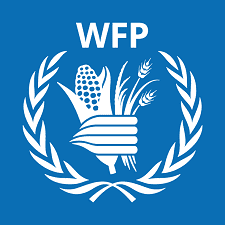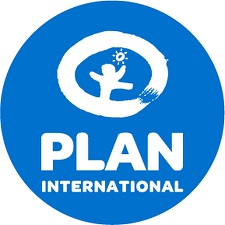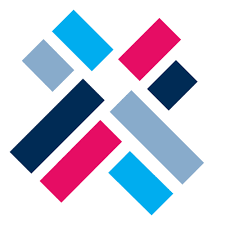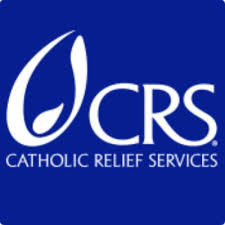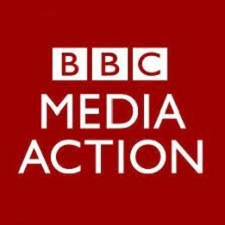🇸🇱 Job Vacancies @ World Health Organization (WHO) – 2 Positions
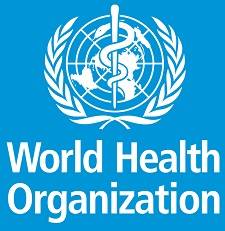 World Health Organization (WHO) is recruiting to fill the following positions in Sierra Leone:
World Health Organization (WHO) is recruiting to fill the following positions in Sierra Leone:
1.) Consultant - Sanitation and Drinking Water
2.) Health Policy Advisor
See job details and how to apply below.
1.) Consultant - Sanitation and Drinking Water
Consultant - Sanitation and Drinking – Water - (2405086)
Grade: No grade
Contractual Arrangement: Special Services Agreement (SSA)
Contract Duration (Years, Months, Days): 4 months
Job Posting
: Jun 13, 2024, 10:25:27 AM
Closing Date
: Jun 27, 2024, 10:59:00 PM
Primary Location
: Sierra Leone-Freetown
Organization
: AF_SLE Sierra Leone
Schedule
: Full-time
IMPORTANT NOTICE: Please note that the deadline for receipt of applications indicated above reflects your personal device's system settings.
..
.
- Area of expertise: Consultant for Sanitation and Drinking – Water
- Purpose of consultancy: The consultant shall work under the overall guidance of the WASH technical staff at the Ministry of Water Resources and Sanitation and under the technical supervision of the WHO - Universal Healthier Population (UHP) Cluster Lead, and Public Health and Environment focal point, WHO.
The Global Analysis and Assessment of Sanitation and Drinking Water (GLAAS) National Consultant plays an important role in GLAAS data collection by supporting processes, coordinating, and contributing to the main GLAAS outputs.
- Background
The Global Analysis and Assessment of Sanitation and Drinking Water (GLAAS) is a UN-Water initiative implemented by the World Health Organization (WHO). GLAAS objectives are defined as, at the global and regional level, monitoring the inputs (in terms of human resources and finance) and the enabling environment (in terms of laws, plans, and policies, as well as institutional and monitoring arrangements), required to sustain and extend water, sanitation, and hygiene (WASH) systems and services to all, and especially to the most vulnerable population groups. GLAAS is also mandated to analyze the factors associated with progress to identify drivers and bottlenecks, highlight knowledge gaps, and assess strengths and challenges within and across countries. It aims to facilitate the work of government-led platforms to enhance coordination across the various sectors, institutions, and actors influencing and requiring WASH service delivery.
In a national context, GLAAS aims to complement WASH sector review processes and assist in assessing the state of the enabling environment, including financial and human resources inputs directed to sanitation, drinking water, and hygiene, while identifying barriers and enablers. GLAAS is not meant to be an additional burden on countries but rather a tool to aid in existing national processes.
In addition to providing sanitation and drinking-water policymakers and practitioners with a more comprehensive evidence base, the GLAAS process also informs political decision-making, particularly through its association with the Sanitation and Water for All (SWA) Partnership. Sanitation and Water for All provides a global platform for discussion among countries and donors participating in the SWA High Level Dialogue Meetings.
For the GLAAS 2024/2025 cycle, data collection will be from August to September 2024, and the GLAAS 2024/25 final data and report will be submitted on 15th October 2024 to WHO HQ.
- Deliverables
- Facilitate the GLAAS process in Sierra Leone. This includes:
- Developing an implementation plan and receiving approval from the government and WHO country offices.
- Organizing, convening and write report on the GLAAS inception workshop with key stakeholders, including representatives from government ministries (Ministry of Finance, Education, Health, Water Resources & Sanitation, and those working in water and sanitation) and partners (such as WHO, UNICEF, INGOs, etc.); and
- Liaising with key stakeholders throughout the GLAAS process.
- Coordinate data collection. This includes:
- Reviewing sector documents as necessary.
- Ensuring all the require data are compiled in GLAAS survey form.
- Following up with stakeholders to receive complete data.
- Having the survey answered as best and completely as possible; and
- Submitting the completed GLAAS survey data base to the Ministry.
- Manage post-data collection tasks. This includes:
- Organize a final review of the completed GLAAS survey data with key stakeholders during a validation workshop.
- Facilitate the completion and submission of the data release consent form, data collection process form, and country feedback form.
- Obtain the government verification and signing off on the data; and
- Work with the GLAAS team at WHO headquarters through WCO SL on any data quality issues and requests for additional validation, if necessary, with no cost attached.
- Expected Outcomes / Impacts
- The government and stakeholders, including donors and partners, use GLAAS data for evidence-based decision-making.
- Informed policies, decisions, programs, and effective planning will increase access to WASH services.
- Strengthening national WASH systems for collection and analyze WASH data for action.
- Qualifications, experience, skills and languages
(Identify the educational qualifications and expertise needed for the terms of reference outlined above.)
Educational Qualifications:
- Essential: A holder of a master’s degree in public health or WASH or environmental health, sanitation, or equivalent.
Experience
Essential: Experience in the sanitation or drinking-water supply sector, planning, development, and/or service delivery in Sierra Leone.
- Minimum 5 years’ experience in WASH-related activities.
- Desirable: Experience in facilitating meetings.
- Established relationships within key government ministries are desirable.
Skills/Knowledge:
Essential: Experience using data software (e.g., MS Word, Excel, PPT, etc.)
- Knowledge of national WASH monitoring processes.
- Knowledge of key WASH sector stakeholders.
- Strong communication skills.
- Desirable: Understanding of the legal framework governing the WASH sector; and
- Proven experience in studies and evaluation of programs in the water sector.
Languages and level required (Basic/Intermediate/Expert):
Essential: English
Expert knowledge of …………….
Intermediate knowledge of ……………
Desirable: (if applicable)
Expert knowledge of …………….
Intermediate knowledge of ……………
- Location
Freetown, Sierra Leone
- Travel
(Please specify any expected travel(s): dates, location and purpose.)
The consultant is not expected to travel
Remuneration:
The total consultancy cost for this assignment is SLE 46,960.4 (forty-six thousand and nine hundred & sixty & four cent New Leones). The consultant will be entitled to a sum of one thousand and one hundred and seventy-four leones and one cent (SLE 1,174.1) per day and for ten days the consultant will be entitled to eleven thousand seven hundred and forty & one cent (SLE 11,740.1) which will be paid monthly.
2.) Health Policy Advisor
Health Policy Advisor - NOC (Open for Sierra Leonean Only) - (2405092)
Grade: No grade
Contractual Arrangement: Special Services Agreement (SSA)
Contract Duration (Years, Months, Days): 12 months
Job Posting
: Jun 12, 2024, 6:24:54 PM
Closing Date
: Jun 26, 2024, 10:59:00 PM
Primary Location
: Sierra Leone-Freetown
Organization
: AF_SLE Sierra Leone
Schedule
: Full-time
IMPORTANT NOTICE: Please note that the deadline for receipt of applications indicated above reflects your personal device's system settings.
..
.
Area of expertise:
Expert in Health Policy.
Purpose of consultancy:
To provide ongoing Technical Support to MOH for policy, implementation, monitoring and reporting on Universal Health Coverage including comprehensive SRH services.
Background
Sierra Leone has some of the world’s highest maternal mortality ratio (443/100,000 live births), child deaths (105/1,000 live births) and stillbirth (23/1,000 live births) rates. Infant and neonatal mortality stand at a rate of 75 and 31 per 1000 live births respectively. Maternal deaths accounts for 23% percent of all deaths among women aged 15-49. Despite these figures, Sierra Leone’s coverage indicators are fairly comparable with many sub-Saharan African countries including neighboring countries within west African subregion. A key priority of the Ministry of Health is to improve quality of care and ensure a client-centered life-stage approach to the delivery of essential health services package for better health outcomes for all the people in the country. Central to this will be the formulation and elaboration of evidence-informed policies, guidelines, protocols, and standards of care.
Deliverables:
- PHC service delivery model redesigned.
- Support bottleneck analysis on the existing healthcare delivery system in line with UHC, EHSP and SRHR
- Facilitate policy dialogue with relevant stakeholders on health care delivery system redesign for advancing UHC
- Support relevant directorates/programmes to review/develop new policies, strategies and plans to improve quality of care along the client-centered life-stages approach.
- Facilitate the revision/update of health care infrastructure norms and standards in line with the MOH policy direction
- Person centered life stage framework for service delivery integrated in the health care delivery system delivered at health care delivery system
- Facilitate mainstreaming of the framework across programs and directorate in their routine planning, implementation, monitoring and reporting
- Support assessment on the existing FHCI progress and challenges with respect to SRHR and support development of free health care policy and incorporation of SRHR commodities in FHCI
- Support landscaping analysis on governance, mandate, duties, and responsibilities of DHMTs to and recommend to the MOH any necessary adjustments to align to changing needs and drive UHC agenda
- Facilitate regular/periodic meetings of the Minister of Health, Minister of Finance and Economic Development, Parliamentarians, Health Development Partners, and other key stakeholders on UHC
- Perform any other related duties as might be assigned supervisors
- Health Systems Strengthening
- Guide the reform process for key Directorates in the Ministry, fostering efficient hospital management.
- Act as a facilitator for overseeing and coordinating hospital development projects.
- Facilitate initiatives to improve and modernize laboratory services.
- Support the implementation of the National Eye Health Programme.
- Facilitate collaboration with academic institutions for postgraduate medical training.
- Reproductive, Child, NCDs, and Mental Health:
- Aid in the implementation of Reproductive and Child Health programs.
- Facilitate strategies and initiatives in cancer prevention, mental health, and rehabilitation.
- Specialized Agencies Collaboration:
- Act as a facilitator in fostering collaboration between health institutions and agencies.
- Facilitate initiatives related to climate change and health.
- Facilitate collaboration with medical and dental associations, councils, and emergency services.
Reporting Requirement
Submit monthly reports on activities/tasks accomplished pertaining to the roles and responsibilities
Qualifications, experience, skills and languages
Education
Essential: Advanced level university degree in Public Health, Medicine, or any other related area of study.
Desirable: Additional specialization in Public Health, Health Systems Strengthening, Health Economics, Health Policy, and Sexual Reproductive Health & Rights, Management or any other relevant area
Experience
Essential: • At least 7 years’ experience in health policy and health care reform
- Background in medicine, public health or related areas
- Demonstrable understanding of the development and content of UHC and SRHR polices and guidelines
- Experience in advocacy, diplomacy and public relations
- Experience in resource mobilization
- Strong leadership and communication skills
- Strong analytical skills
Skills/Knowledge:
- Proficiency in Microsoft Office.
WHO Competencies
- Teamwork
- Respecting and promoting individual and cultural differences
- Communication
- Building and promoting partnerships across the organization and beyond
- Moving forward in a changing environment
Languages and level required (Basic/Intermediate/Expert):
Essential: Excellent knowledge of English.
- Location:
c/o World Health Organization, Sierra Leone, 21 A&B Riverside Drive, off King Harman Road
P.O. Box 529 Brookfields, Freetown, Sierra Leone
